Lettie Ndlovu
Students & Alumni. English language and linguistics.
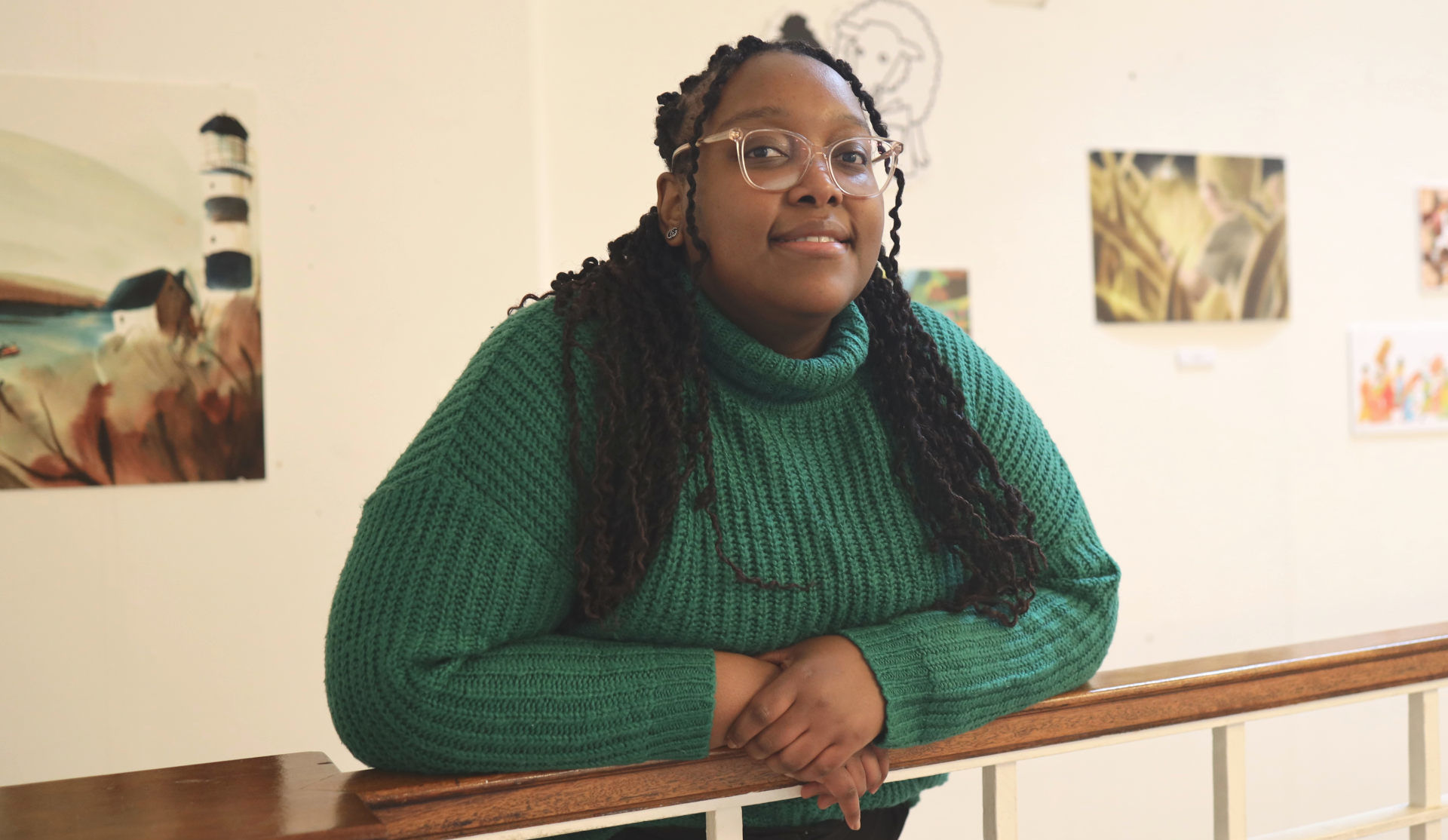
Lettie graduated from ARU’s BA (Hons) English Language and Linguistics in 2017 and has worked with Amazon ever since, starting as a linguist on the Alexa team before taking on a degree apprenticeship as a Solutions Architect with Amazon Web Services.
What have you been doing since graduating from ARU?
I've been at Amazon since the September after I graduated. I started off as a linguist on the Alexa team, working on things like the pronunciation of words, intonation, and the development of the neural voice, to make Alexa more natural. I did two years working on the non-tech side of the linguistics team, then I moved on to a creative writing role supporting the personality team for Alexa.
While I was there I wanted a bit more of a techie role, but obviously I didn't really get that experience doing English language, so I'm now doing a degree apprenticeship as a Solutions Architect for Amazon Web Services. But I’m still really interested in the language side - natural language processing and that kind of thing - so I’m doing some training internally as well to fit what I learned on both of the degrees together.
My role now as an apprentice is helping customers use AWS to develop their IT infrastructure to help achieve their business goals. I actually work with education customers, seeing how they can use AWS to develop lots of different things. So if a student wants to develop something like a tool to find like a lost language, we can advise them on AI services they might be able to use, and support them.
Where and what did you study before ARU?
I went to Hyde Clarendon Sixth Form. I studied English language, history, chemistry and maths, but I did drop chemistry and maths and picked up sociology instead for my second year.
I was very interested in English language. Actually, I was one of those eclectic people who loved both maths and English – normally you either love one or the other – so I think that’s how I got to where I am now, because there is some maths involved in AI and machine learning. But I actually wanted to do something like forensic linguistics initially. For example, if there’s a murder and a note is left, you look at the language used in it to help figure out who the killer is, or if someone goes missing, you can see if there's any changes in the language of their text messages, to identify if someone else is now using their phone. But not many universities did it - I think it's more popular in America than it is here.
Did you always know that you would go to university and if not, what changed your mind?
I feel like there was no other choice for me really. Growing up, everyone went to uni. My mum went to university. All my siblings went to university. So that was always the decision. I just was never sure what I was going to study until I got to the second year of college.
My sister's a doctor, so I felt pressure to do something that was as impressive as studying medicine! But then I decided I would actually just do something I knew I’d enjoy, which is why I did English language. Seeing my mum’s work ethic and how much she managed to achieve really inspired me to explore opportunities that I had available.
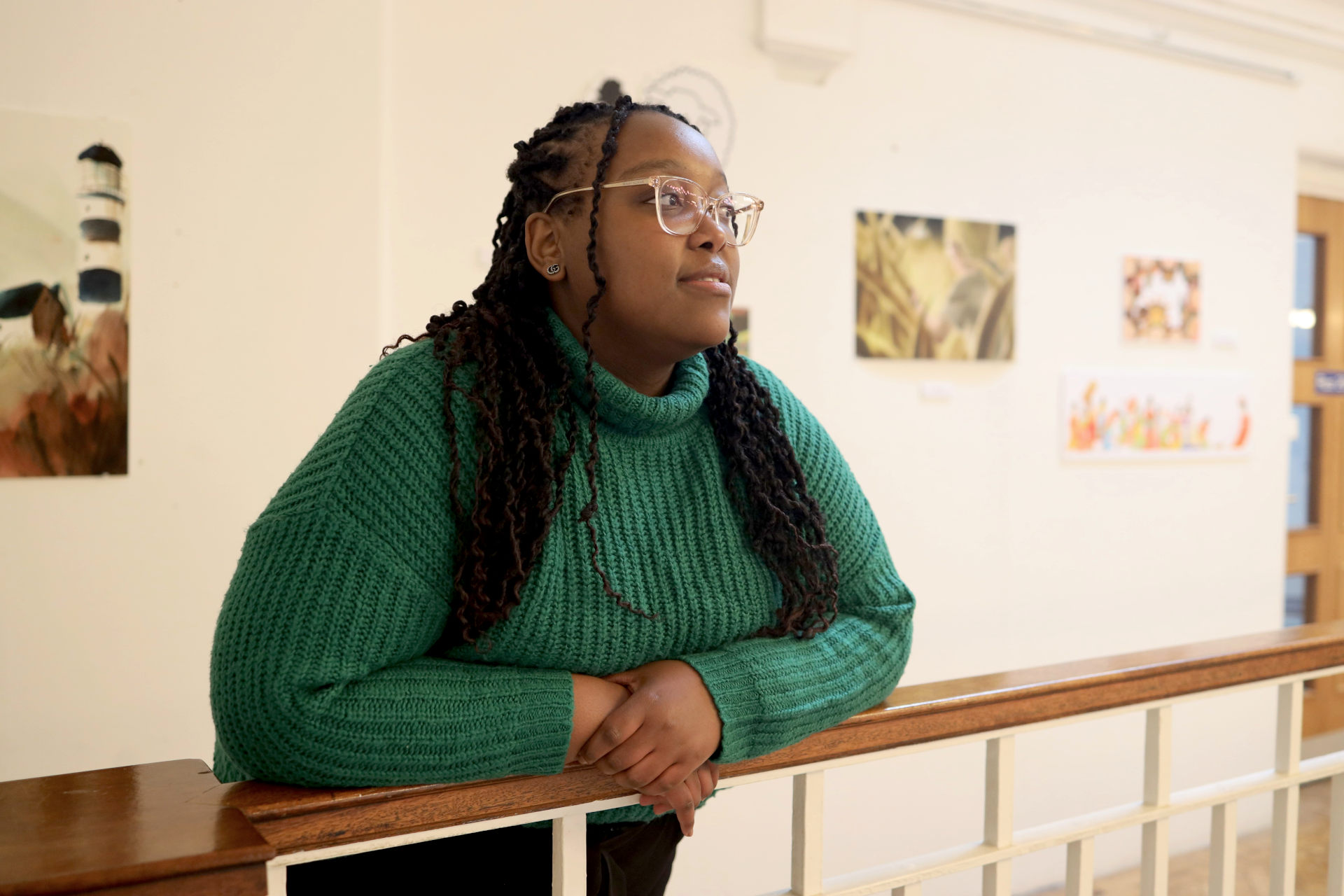
What gave you this love of English Language in the first place?
I just always found it interesting, but I didn't really like the grammar, pragmatics, and semantics side of it. Maybe it’s because I also speak isiNdebele, which is so unrelated to English. It’s a language from Zimbabwe, like a child language of Zulu. We all speak it in my family, it’s just the language we grew up speaking at home.
So just being able to look at the differences in structure between the two languages, understanding why certain spellings in English have different pronunciations, and the different kinship terms too. The phonetics side I find really interesting - in my language we have clicks, but you don't in English, so looking at the comparisons was really interesting. And the sociolinguistics too – regional dialects and changes, or differences in class pronunciations.
I recently started doing Zulu on Duolingo again, just to get my brain working. I still want to keep that skill even though I don't really go back to Zim often. It’s interesting, looking at translation tools and seeing that they now have more African languages. They've now got Swahili and Shona and stuff like that. It's always really cool to see.
What’s the most valuable thing you took away from your education?
I think it was just being able to focus on the areas that I really loved, and seeing what I could do with them. I really enjoyed the linguistics aspect, and phonetics, so tried to find a way to use those in my career.
The ARU course just opened up my eyes to things that we hadn't done at school or college that I just really found interesting. Even though I don’t use it as much now as I would like to, I still get super excited about random things that I come across - like watching Pointless on New Year's Eve a couple of years ago, and syn-anagrams came up. I got so excited that I messaged my friend, “Oh my gosh, this is like a language related thing. How cool is this?” Or I’ll just be scrolling through TikTok and a linguist or language-related video will come up, and I’ll still get really excited about it. It’s quite sad really!
That's what the course really gave me - something that still gets me excited now, even though it's a few years later. It's very cool.
How did the course at ARU help your career development?
A lot of the skills I learned at university were really useful at the start of my career, in my job as a linguist. Things like understanding the international phonetics alphabet, or the rules of language. Intonation and that kind of thing was really important when I first joined Amazon. Most of what I learned at university helped with that role, and also when I moved to the writing instead, because we had done modules around creative writing. So the course helped me with both journeys that I wanted to take when I joined.
But I think the extra step was then looking at what more there was on top. When I was in my third year, I heard about computational linguistics - I originally thought about doing a Master’s in it, before taking the apprenticeship - and looked at how can language be used differently, which was useful for working with a Voice Assistant, being able to teach it to sound more natural.
At the time, this was quite a new thing. We used to have career events at the university and I went to some, but I don't remember talking to any tech companies. Alexa hadn’t been in Cambridge long when I joined. But I did go back to ARU a year or two after I started, and met with some lecturers to talk about my career, to see how they could help other students down this career path.
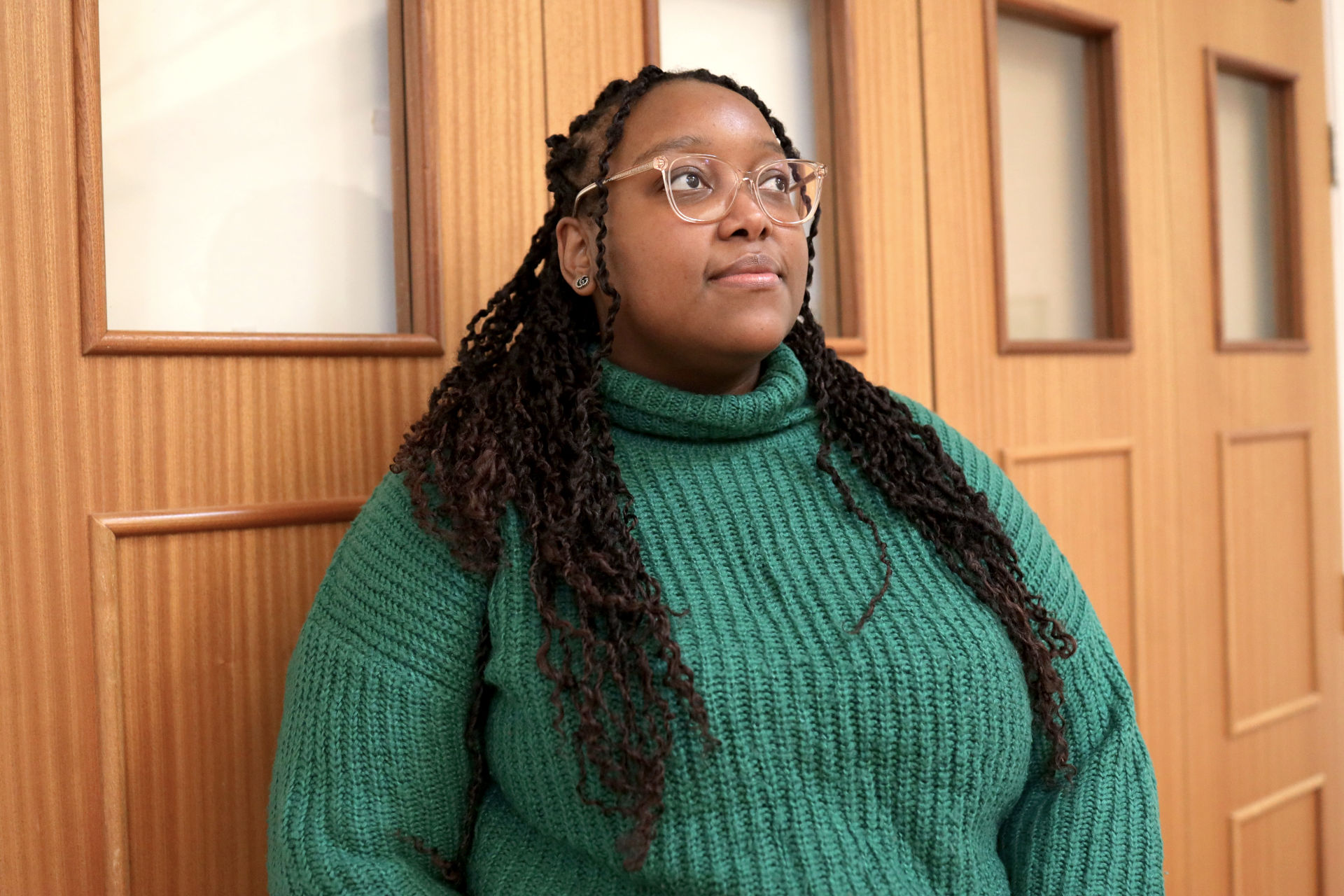
What was your favourite thing about studying in Cambridge, and what did you learn about it that you didn’t know before?
I loved Cambridge. I would move back to Cambridge if I could. I really enjoyed it.
I liked the amount of green space. It was a busy place without being too busy, so it was a comfortable place to be. I didn't feel too overwhelmed. I used to have really bad social anxiety, so that was my biggest worry going to university. But actually it was a comfortbale environment, especially at Anglia Ruskin. It wasn’t too intimidating!
There were some good extracurricular classes. I did dance for a while – I used to love dancing. I was a cheerleader at school and it was one of those things that really helped my mental health. I remember once we had a Latin dance night in the Student Union - that was really good fun.
What projects are you currently working on, both at work and outside it?
I’m working with education customers, to see how they can utilise AWS and cloud computing for different areas. Outside of work, I guess it’s a bit of both. A degree in digital and tech solutions with a goal hopefully of doing a Master's in Artificial Intelligence as well after that.
I recently started dance classes again. I found a studio not far away from my office, so I'll try and go to a class after work. My goal for this year is to do a bit more of that. I really enjoy it. I've also got some really good apprentice friends at work and we do things like game nights. Last week we just played some board games after work one day.
I still get time for things after work. The only time I don't is if I've got an assignment due - then I just don't see anyone for a week or two. But the team's really supportive of the fact that I'm an apprentice, so if I do need time during work hours to do my assignments or workshops they're fine about it and help me find cover.
What piece of advice would you give to your younger self?
To be more open minded about where I want to go in the future, not to put myself in a box of “I have to do this career to make people proud”. Things are forever changing and different roles and paths open up, so just to be more open to those.
But also to be ok with doing things and realising I don’t like them. It’s ok to not have a five-year plan. It’s ok if things fail during that time, and then you just change and do what’s right for you. Essentially, to just get rid of that extra pressure I put on myself for no reason.
I think that pressure went away around the third year of uni, when I realised I had no set career path in mind so decided that I might as well do something that I found interesting, which is what I ended up doing. I think those doubts do peek in every now and again. So when I was working, I felt I had to think about career progression, I had to become a manager. That was the only way to progress. But then I realised that actually I don’t. I can move laterally if I want to, which is what I ended up doing. Just try something new!
Where now
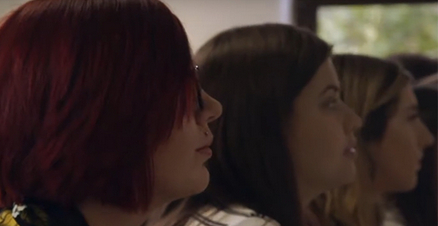
ARU website
BA (Hons) English Language and Communication
Whether you want to use your communication skills in the media or in the boardroom, our degree course will give you a thorough understanding of how the English language works and how it reflects the most important issues of our times.
Find out more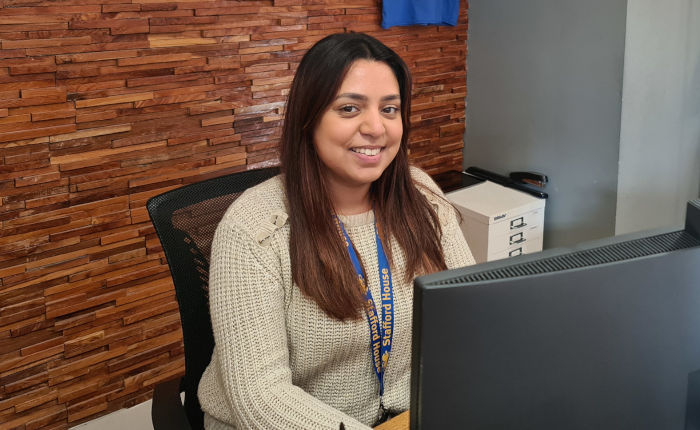
Our people
Jyoti Singh
Jyoti graduated from our BA (Hons) English Language in 2020, and now works as Student Services Manager at Stafford House language school, Cambridge.
Meet Jyoti